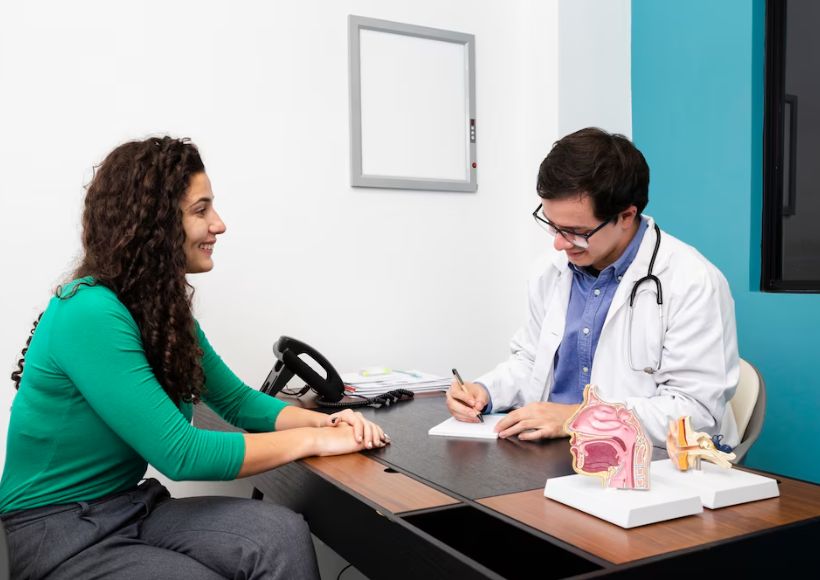Empowering Women’s Health
Introduction
Women’s health is a multifaceted domain that encompasses physical, mental, and emotional well-being. One of the fundamental aspects of maintaining women’s health is through regular gynecological exams. These exams are crucial for ensuring reproductive and sexual health, detecting potential health issues early, and empowering women with knowledge about their bodies. In this blog, we will delve into the importance of gynecological exams, what they entail, and how they contribute to overall well-being.
The Importance of Gynecological Exams
Early Detection of Health Issues
Gynecological exams are pivotal for the early detection of various health issues. Regular check-ups can identify conditions such as cervical dysplasia, sexually transmitted infections (STIs), and early stages of gynecological cancers like cervical, ovarian, and uterine cancer. Early detection significantly increases the chances of successful treatment and can prevent complications that arise from untreated conditions.
Statistical Insight: According to the American Cancer Society, regular Pap tests have reduced the incidence of cervical cancer by more than 50% over the last 30 years. This underscores the effectiveness of regular screenings in early detection and prevention.
Monitoring Reproductive Health
For women in their reproductive years, gynecological exams play a critical role in monitoring and managing reproductive health. These exams can help track menstrual cycles, address issues such as irregular periods or heavy bleeding, and manage conditions like polycystic ovary syndrome (PCOS) and endometriosis. Additionally, gynecologists provide essential guidance on contraception and family planning, supporting women in making informed choices about their reproductive lives.
Statistical Insight: Approximately 10% of women of reproductive age are affected by PCOS, a condition that can lead to infertility if not managed properly. Regular gynecological exams are crucial for diagnosing and managing such conditions.
Ensuring Sexual Health
Sexual health is an integral part of overall well-being, and regular gynecological exams ensure that women receive appropriate care and advice on this front. Gynecologists can provide counseling on safe sex practices, diagnose and treat STIs, and address sexual dysfunctions. These consultations offer a safe space for women to discuss any concerns about their sexual health without judgment.
Statistical Insight: The World Health Organization (WHO) estimates that more than 1 million sexually transmitted infections (STIs) are acquired every day worldwide. Regular gynecological exams can help in the early detection and treatment of STIs, reducing the risk of severe health complications.
What to Expect During a Gynecological Exam
Medical History Review
A typical gynecological exam begins with a review of the patient’s medical history. The gynecologist will ask about menstrual cycles, sexual activity, contraceptive use, and any symptoms or concerns the patient may have. This information is crucial for understanding the patient’s overall health and identifying any potential issues.
Physical Examination
The physical examination includes checking vital signs such as blood pressure and weight. The gynecologist will also perform a breast exam to check for lumps or abnormalities and a pelvic exam to inspect the external and internal reproductive organs. During the pelvic exam, the doctor may conduct a Pap smear to screen for cervical cancer and an HPV test to check for human papillomavirus, a major cause of cervical cancer.
Laboratory Tests
Based on the initial findings, the gynecologist may recommend additional laboratory tests. These could include blood tests, urine tests, or swabs to check for infections. For women experiencing specific symptoms, further diagnostic procedures like ultrasounds or biopsies might be necessary.
Overcoming Barriers to Regular Gynecological Exams
Despite the clear benefits, many women face barriers to accessing regular gynecological care. These barriers can include lack of awareness, cultural stigma, financial constraints, and fear or anxiety about the exams. Addressing these barriers is essential for ensuring that all women can benefit from regular gynecological care.
Education and Awareness
Raising awareness about the importance of gynecological exams and educating women on what to expect can help alleviate fear and misconceptions. Community health programs, educational campaigns, and healthcare provider outreach are effective ways to spread this information.
Tips:
- Utilize social media platforms to share information and personal stories about the importance of regular gynecological exams.
- Partner with schools and community organizations to provide educational workshops on women’s health.
- Distribute informative brochures and posters in clinics, pharmacies, and community centers.
Cultural Sensitivity
Cultural beliefs and practices can significantly influence a woman’s decision to seek gynecological care. Healthcare providers should approach these conversations with sensitivity and respect, ensuring that women feel comfortable and understood. Offering services in multiple languages and providing culturally competent care can also help bridge these gaps.
Tips:
- Hire bilingual healthcare staff or provide translation services to accommodate non-English-speaking patients.
- Train healthcare providers in cultural competency to improve communication and patient comfort.
- Collaborate with community leaders and organizations to build trust and encourage women to seek care.
Financial Accessibility
Cost is a significant barrier for many women when it comes to regular gynecological exams. Health policies that provide affordable or free reproductive health services are crucial. Insurance coverage, government programs, and community health clinics can play a vital role in making gynecological care accessible to all women.
Tips:
- Advocate for policies that support free or low-cost reproductive health services.
- Inform women about available government programs and community health resources.
- Work with insurance companies to improve coverage for gynecological exams and related procedures.
“Also Read: Birth Control Side Effects. “
Statistical Insights and Management Tips
Early Detection of Health Issues
- Statistical Insight: Regular Pap tests have reduced the incidence of cervical cancer by over 50% in the past three decades.
- Management Tips:
- Schedule annual exams and keep track of appointments with a calendar or health app.
- Encourage women to share their experiences to normalize the conversation about gynecological health.
Monitoring Reproductive Health
- Statistical Insight: PCOS affects approximately 10% of women of reproductive age, potentially leading to infertility if unmanaged.
- Management Tips:
- Maintain a health journal to record menstrual cycles and any unusual symptoms.
- Use online resources and support groups to stay informed about reproductive health.
Ensuring Sexual Health
- Statistical Insight: Over 1 million STIs are acquired daily worldwide, according to WHO.
- Management Tips:
- Promote safe sex practices and provide access to contraception.
- Offer regular STI screenings and sexual health education in communities.
The Role of Healthcare Providers
Healthcare providers play a crucial role in encouraging regular gynecological exams. They can:
- Build trust with patients through consistent, compassionate care.
- Provide clear information about the benefits and process of gynecological exams.
- Create a welcoming environment that respects cultural sensitivities and personal preferences.
Conclusion
Regular gynecological exams are a cornerstone of women’s health, offering essential benefits for reproductive and sexual well-being. They facilitate early detection of health issues, monitor reproductive health, and ensure sexual health through professional guidance and treatment. By overcoming barriers to access and raising awareness about their importance, we can empower women to take control of their health and well-being.
Empowering Women’s Health is not just about addressing medical needs; it’s about providing women with the knowledge, support, and resources they need to lead healthy, fulfilling lives. Regular gynecological exams are a critical component of this empowerment, helping women navigate their health journey with confidence and care.
Source:


